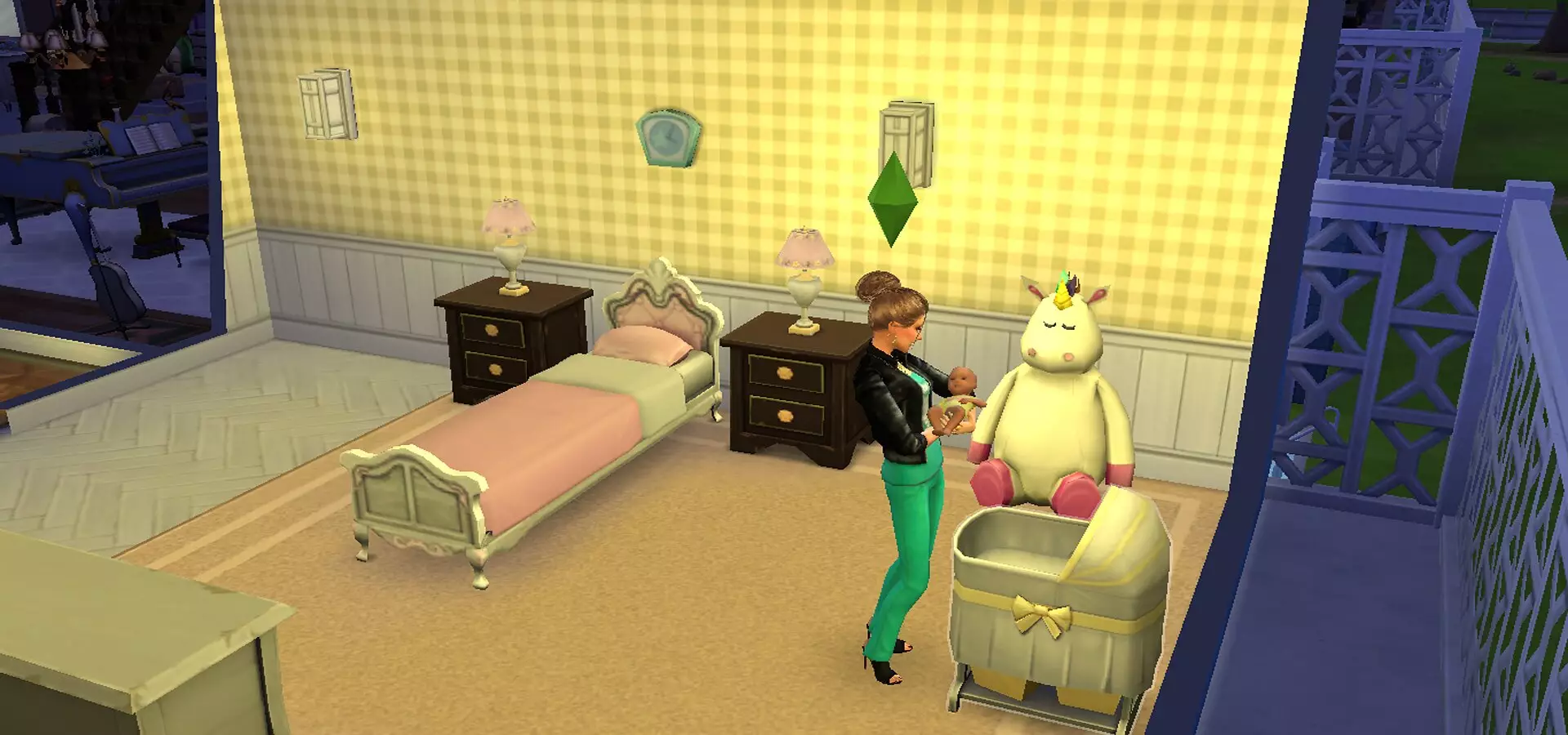After a long and tiring day, the thought of doing household chores can be disheartening. However, there is a unique way to find solace and entertainment in tackling domestic tasks: video games. Australian game developers have ingeniously transformed repetitive and often unappealing household activities into exciting and immersive gaming experiences. Games like “Untitled Goose Game,” “The Sims,” and others offer players the opportunity to find joy and relaxation in completing mundane tasks that would otherwise be dull in real life.
One of the standout games that exemplifies this concept is “Moving Out” and its sequel, “Moving Out 2.” In these games, players assume the role of a removalist who must quickly move large items such as fridges, beds, and sofas out of homes. Developed by Australian and Swedish studios, “Moving Out” incorporates elements from the wildly popular cooking game “Overcooked.” What sets “Moving Out” apart is its transformation of removals into an athletic activity. The game turns floor plans and yards into obstacle courses complete with animals, swimming pools, and even ghosts. Players find themselves navigating furniture through haunted houses and space stations, injecting a sense of the fantastical into an otherwise mundane process. Within the game, players have the freedom to break windows, toss objects, and disregard stairs, embracing the delights of recklessness. In a world increasingly focused on accumulating possessions, “Moving Out” offers cathartic relief through property destruction.
“Unpacking,” dubbed a “zen puzzle game,” presents players with the opportunity to delve into someone’s life journey from youth to adulthood by sorting their belongings during a series of removals. Banal tasks turned captivating, “Unpacking” enables players to explore unfamiliar living spaces and the lives of unseen characters. Despite the engaging nature of the gameplay, mysteries still abound. The pixel art graphics tantalize players with unreadable book covers and journal entries, leaving the occupant’s story intriguingly incomplete.
“Florence,” designed by the same creator behind the highly acclaimed puzzle game “Monument Valley,” transports players into the world of limited storage space and the challenges of accommodating a partner’s possessions. Similar to “Unpacking,” “Florence” invites players to complete domestic tasks within an unfamiliar setting. The game revolves around organizing the couple’s belongings, while the exchange of words between the characters remains unknowable. By focusing on the management of used possessions instead of materialistic consumption, “Florence” challenges the notion that happiness is achieved through purchasing new goods.
In the Australian game “Rumu,” players assume the role of a robot vacuum cleaner responsible for tidying up food spills, organizing clothing, and investigating the disappearance of the house’s owners. However, this vacuum cleaner is not just an appliance; it is an integral part of a futuristic home where the artificial intelligence home assistant grapples with emotional problems. The house itself resembles a maze, concealing gadgets and secrets that players must unravel to move from one location to another. “Rumu” seamlessly blends the surreal with everyday life, providing players with a unique perspective on mundane tasks.
These Australian video games showcase a growing trend in popularizing everyday settings as engaging gaming environments. By introducing banal tasks as forms of entertainment, these games invite players to experience the extraordinary in the ordinary. French philosopher and sociologist Henri Lefebvre argued that the everyday could have elements of the surreal, extraordinary, surprising, and magical. In these games, mundane tasks are juxtaposed with encounters with robots, aliens, and the supernatural, transforming the ordinary into an adventure.
Interestingly, these games also provide an opportunity to challenge norms surrounding gender, work, and domesticity. While women traditionally spend more time on unpaid domestic labor than men, the gaming industry in Australia is witnessing an increased presence of female players. Developers have cleverly incorporated gender diversity by allowing players to choose avatars of different genders and species, or control characters with both masculine and feminine traits. By linking domestic labor with fantasy and adventure, these games encourage players to reimagine everyday life and ordinary places as extraordinary.
Australian video games have successfully reimagined mundane household tasks by transforming them into thrilling and immersive gaming experiences. Games like “Moving Out,” “Unpacking,” “Florence,” and “Rumu” capture players’ attention by offering innovative gameplay centered around everyday activities. By embracing the extraordinary in the ordinary, these games challenge societal norms and provide players with a fresh perspective on gender roles and the true potential of mundane tasks. So, next time you find yourself dreading housework, consider stepping into the digital realm where domesticity becomes an exhilarating adventure.


Leave a Reply